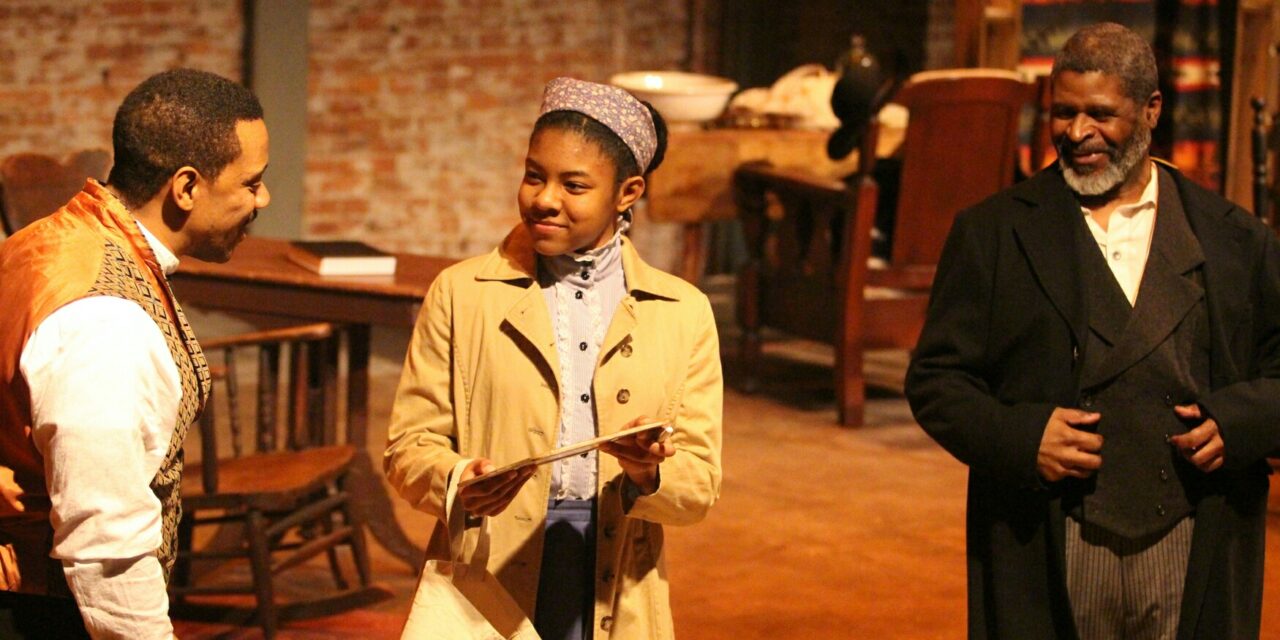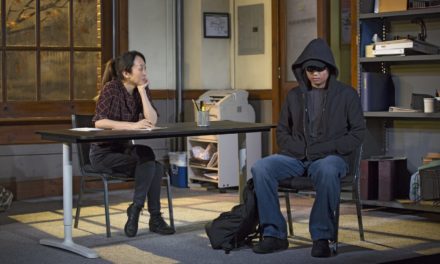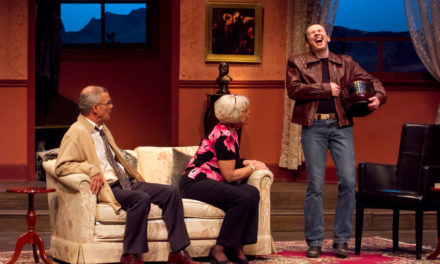Set on the Kansas prairie in the late 19thcentury, Mark Clayton Southers’ Saviour Samuel might best be described as an African-American version of Little House On The Prairie–with a supernatural twist.
Like Little House, the play focuses on a family that has moved west to settle in the aftermath of the Civil War. Benjamin Clayson (Wali Jamal), his wife Virginia (Cheryl El-Walker), and their deaf teen-aged daughter Essie (Aaliyah Sanders) are struggling homesteaders on a remote piece of land, where Ben hunts and traps to put food on the table and makes a living distilling and selling moonshine to the local “Injuns.” And like Little House, the play is episodic in structure and primarily concerned with character and detailed world-building. The action begins when Virginia realizes that Essie is pregnant; Essie–whose communication skills are limited by the rudimentary sign language her parents have developed with her–is unable to tell her parents who the father is. After the baby is born, Ben asks a traveling faith healer, Rory Dobbs (Jonathan Berry), to take the infant to an orphanage in Pennsylvania; Rory brings the child home to his wife Nellie (Dominique Briggs) first, and they name him Samuel and decided to raise him as their own. When the boy turns out to be blind, however, Rory fears that people will think he is ineffective as a healer, so he asks his friend Dukem (Sam Lothard) to take Samuel to the Catholic orphanage, which is run by a Mother Superior (Susie McGregor-Laine) with help from Sister Bethany (Marsha Mayhak). As he is passed from caretaker to caretaker, Samuel turns out to have a profound spiritual effect on the people he has left behind.
Playwright Southers threads myriad interrelated themes through the weft and weave of his elaborately imagined history. These include: the class difference between African-Americans like Ben, who had been born enslaved, and men like Rory, who had always been free; the cruel separation of women from their children under slavery; the opportunities the frontier could offer to African-Americans in the post-Civil War era; the alliances–and tensions–between African American settlers and the Native Americans they were displacing; women’s lack of autonomy; and the power of faith. He populates the world of his play with memorable characters, all of whom need healing, from either physical or psychological damage, and the dialogue he gives them is earthy and vivid.
Director Monteze Freeland knits the play’s episodes together with music by Dwayne Fulton that lends the whole the quality of a long-form television drama. Kim Brown’s evocative costumes cement the action in the 19th-century. Standouts in the cast include Jamal as the gruff yet caring father Ben, and the young Sanders as his silent but fiercely determined daughter Essie.
This article was originally posted in The Pittsburgh Tatler on February 23, 2019, and has been reposted with permission.
This post was written by the author in their personal capacity.The opinions expressed in this article are the author’s own and do not reflect the view of The Theatre Times, their staff or collaborators.
This post was written by Wendy Arons.
The views expressed here belong to the author and do not necessarily reflect our views and opinions.


















